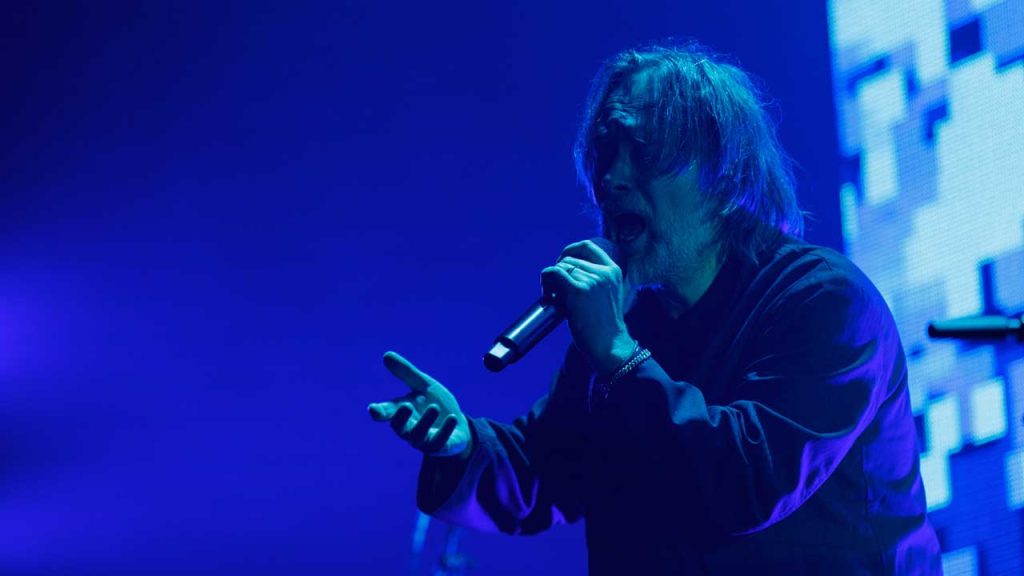Radiohead’s Thom Yorke walks off stage after being heckled by pro-Palestinian protester
3 min read
Thom Yorke walks off stage after row with Gaza protester at Melbourne show

Thom Yorke walks off stage after row with Gaza protester at Melbourne show
Thom Yorke, the lead singer of Radiohead, abruptly left the stage during his solo concert in Melbourne, Australia, on Wednesday night after being confronted by a heckler advocating for pro-Palestinian views. The incident unfolded at the Sidney Myer Music Bowl, where the singer had just begun his performance.
Video footage that circulated on social media captured the moment when a concert-goer shouted about the escalating death toll in Gaza, labeling it as “the Israeli genocide of Gaza.” The protester challenged Yorke directly, questioning how he could remain silent amidst such conflict.
In response, Yorke called out to the heckler, urging them to come up to the stage to voice their concerns directly. “Come up here and say that. Right here. Come on. Come up on the f**king stage and say what you want to say,” he responded, visibly agitated. He pointed toward the heckler, insisting, “Don’t stand there like a coward. Come here and say it.”
Yorke’s escalating frustration was evident as he continued, “Come on. You want to piss on everybody’s night? Come on.” After this confrontation, he concluded with a terse, “OK, you do. See you later then,” before leaving the stage. Despite the interruption, he returned later to perform Radiohead’s iconic 1997 track, “Karma Police,” as shared by attendees on social media.
CNN has reached out to Arts Centre Melbourne, the venue hosting the concert, for further comment on the incident.
This confrontation is not the first time Radiohead has faced backlash regarding their stance on Israel. In 2017, the band was criticized for choosing to perform in Tel Aviv, which drew attention from the Boycott, Divestment, Sanctions (BDS) movement. The organization called on the band to boycott Israel in light of its policies and actions in the West Bank and East Jerusalem.
At that time, a group called Radiohead Fans for Palestine wrote open letters urging the band to reconsider their performance. The letters highlighted the plight of Palestinians, emphasizing issues such as home demolitions, land seizures, and widespread violence against civilians.
Despite the pressure from activists and fans, the band opted to go ahead with their performance in Israel. Yorke defended the decision, stating that playing in a country does not equate to endorsing its government. He articulated a broader philosophy about music, asserting that it should be about “crossing borders, not building them.”
The incident at the Melbourne concert reflects a growing trend where artists and public figures are confronted with political issues during their performances. Such moments can provoke strong reactions from both supporters and opponents, often leading to intense public discourse.
Yorke’s decision to engage directly with the heckler reveals a complex dynamic that artists navigate in today’s politically charged environment. While he returned to perform, the exchange underscores the challenges of balancing artistic expression with political activism, particularly in a world where audiences are increasingly vocal about their beliefs.
As the conflict in Gaza continues to draw international attention, it is likely that artists like Yorke will continue to face challenges related to their public platforms. The interplay between art and activism remains a critical conversation, with artists often finding themselves at the center of contentious global issues.
Yorke’s actions in Melbourne serve as a reminder of the pressures musicians face and the ways in which they respond to calls for political engagement. As debates over such topics become more pronounced, the music industry may need to consider how to navigate these complex waters without alienating fans on either side of the conversation.